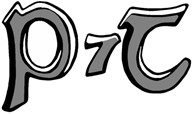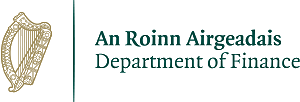The 26th government of Ireland was the government of Ireland formed after the 2002 general election to the 29th Dáil which had been held on 17 May 2002. It was led by Fianna Fáil leader Bertie Ahern as Taoiseach, with Progressive Democrats leader Mary Harney as Tánaiste. It was the first, and to date only, coalition government to be returned to government after an election; both parties increased their number of seats, and together secured a Dáil majority, where in the previous government they had governed together as a minority government dependent on the support of Independent TDs. It lasted for 1,835 days.
The 25th government of Ireland was the government of Ireland formed after the 1997 general election to the 28th Dáil held on 6 June 1997. It was a minority coalition government of Fianna Fáil and the Progressive Democrats, led by Fianna Fáil leader Bertie Ahern as Taoiseach. It lasted 1,807 days.
The 20th government of Ireland was the government of Ireland formed after the 1987 general election to the 25th Dáil on 17 February 1987. It was a minority Fianna Fáil government which had the qualified support of Fine Gael, the main opposition party, an arrangement known as the Tallaght Strategy after a speech by its leader Alan Dukes. The national debt had doubled under the previous government. The government introduced budget cuts in all departments. The taxation system was also reformed. One of the major schemes put forward was the establishment of the International Financial Services Centre (IFSC) in Dublin. During this period the Government organised the 1,000-year anniversary of the founding of Dublin.
There were two governments of the 26th Dáil elected at the 1989 general election on 15 June 1989, both being coalition governments of Fianna Fáil and the Progressive Democrats. The 21st government of Ireland was led by Charles Haughey as Taoiseach and lasted 945 days. The 22nd government of Ireland was led by Albert Reynolds as Taoiseach and lasted 308 days from its appointment until resignation, and continued to carry out its duties for a further 29 days until the appointment of its successor, giving a total of 337 days.
There were two governments of the 21st Dáil, which was elected at the 1977 general election on 16 June 1977. Both were single-party majority Fianna Fáil governments. The 15th government of Ireland was led by Jack Lynch as Taoiseach and lasted for 890 days. The 16th government of Ireland was led by Charles Haughey and lasted for 568 days.
The 4th Government of Ireland was the government of Ireland formed after the 1944 general election to the 12th Dáil held on 30 May. It was a single-party Fianna Fáil government led by Éamon de Valera as Taoiseach. It lasted for 1,350 days.Fianna Fáil had been in office since the 1932 general election.

The Minister for Posts and Telegraphs was the holder of a position in the Government of Ireland. From 1924 until 1984 – when it was abolished – the minister headed the Department of Posts and Telegraphs, the government-run postal, telegraph and telephone service covering the Republic of Ireland.
The Minister for Labour was originally a position in the Government of the Irish Republic, the self-declared state which was established in 1919 by Dáil Éireann, the parliamentary assembly made up of the majority of Irish MPs elected in the 1918 general election. Constance Markievicz was the first person to hold the post. The office did not continue into the Executive Council of the Irish Free State.

The Minister for Education is a senior minister in the Government of Ireland and leads the Department of Education. The current Minister for Education is Norma Foley, TD.

The Ministers and Secretaries Acts 1924 to 2020 is the legislation which governs the appointment of ministers to the Government of Ireland and the allocation of functions between departments of state. It is subject in particular to the provisions of Article 28 of the Constitution of Ireland. The Acts allow for the appointment of between 7 and 15 Ministers of Government across 17 Departments, and for the appointment of up to 20 junior ministers, titled Ministers of State, to assist the Ministers of Government in their powers and duties.

The Department of Finance is a department of the Government of Ireland. It is led by the Minister for Finance.
The Department of Housing, Local Government and Heritage is a department of the Government of Ireland. It is led by the Minister for Housing, Local Government and Heritage.
The Department of Enterprise, Trade and Employment is a department of the Government of Ireland. It is led by the Minister for Enterprise, Trade and Employment.
The Department of Agriculture, Food and the Marine is a department of the Government of Ireland. According to the department, its mission is to "lead the sustainable development of a competitive, consumer focused agri-food sector and to contribute to a vibrant rural economy and society". It is led by the Minister for Agriculture, Food and the Marine.
There were two governments of the 30th Dáil, which was elected at the 2007 general election on 24 May 2007. The 27th government of Ireland was led by Bertie Ahern as Taoiseach and lasted 329 days. The 28th government of Ireland was led by Brian Cowen as Taoiseach and lasted 1,037 days. The governments were formed as coalition governments of Fianna Fáil, the Green Party and the Progressive Democrats. The Progressive Democrats disbanded in November 2009 and Mary Harney continued as an Independent member of the government until 20 January 2011. The Green Party left government on 23 January 2011.
The Department of the Environment, Climate and Communications is a department of the Government of Ireland that is responsible for the telecommunications and broadcasting sectors and regulates, protects and develops the natural resources of Ireland. The head of the department is the Minister for the Environment, Climate and Communications.

The 29th government of Ireland was the government of Ireland which was formed following the 2011 general election to the 31st Dáil on 25 February 2011. It was a coalition government of Fine Gael and the Labour Party led by Enda Kenny as Taoiseach. From 2011 to 2014, Labour Party leader Eamon Gilmore served as Tánaiste, and from 2014 to 2016, the new Labour leader Joan Burton served as Tánaiste.
There were two governments of the 32nd Dáil, which was elected at the general election held on 26 February 2016. The 30th government of Ireland was led by Enda Kenny as Taoiseach and the 31st government of Ireland was led by Leo Varadkar as Taoiseach. They were minority governments with Fine Gael and Independent TDs at cabinet, reliant on the support of other Independent TDs, and a confidence and supply arrangement with Fianna Fáil. It was the first time Fine Gael had returned to government after a general election, and the succession of Varadkar as Taoiseach in 2017 was the first time a Fine Gael leader had succeeded a party colleague as Taoiseach within a Dáil term.
There have been three governments of the 33rd Dáil to date, being coalition governments of Fianna Fáil, Fine Gael and the Green Party. This followed the 2020 general election to Dáil Éireann held on 8 February, and negotiations on a programme for government that lasted till June. The parties agreed on a rotation, with the two major party leaders alternating as Taoiseach. The makeup of the parties resulted in a centrist coalition. It was the first time that Fianna Fáil and Fine Gael have participated in the same government, which Leo Varadkar described as the end of what has often been referred to as Civil War politics.

The Department of Transport is a department of the Government of Ireland that is responsible for transport policy and overseeing transport services and infrastructure. The department is led by the Minister for Transport.







